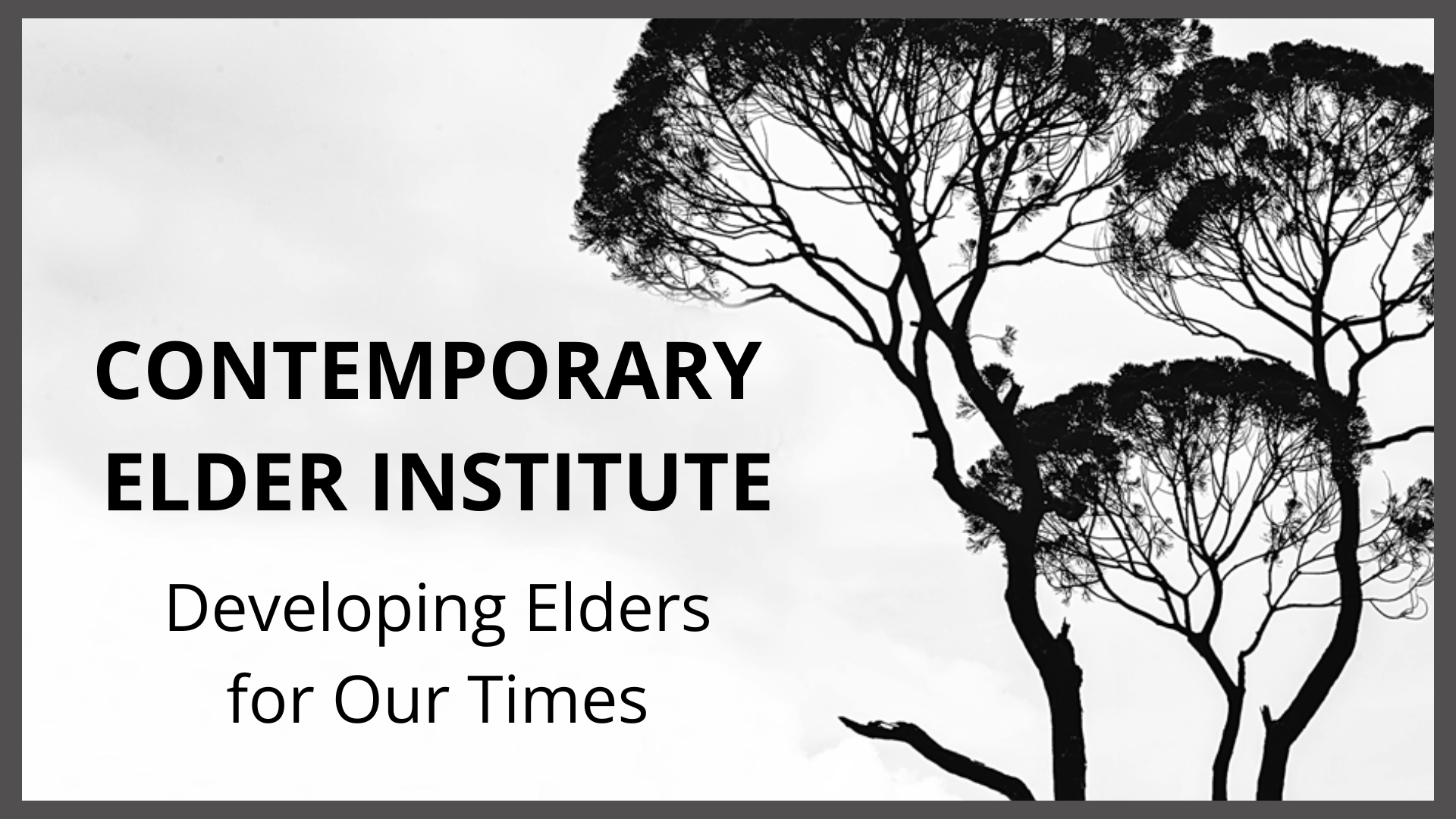BEING IN THE MOMENT
BeING in the Moment
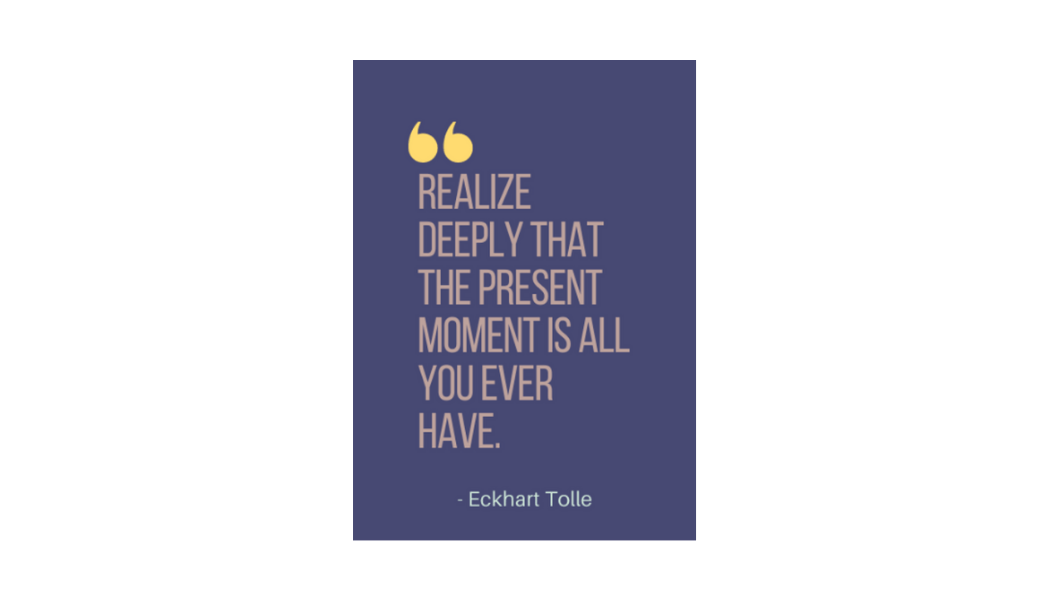
Contemporary elders develop a capacity to be fully present in the moment and, more importantly, realize when they are not.
Being able to drop into the present moment is a significant hurdle to overcome on the path to elder—thoughts about potential financial, political, and individual insecurity and turmoil obstruct being in the moment. Therefore, the mind believes it must stay on high alert, at the ready, to deal with the many perceived threats posed.
Yes, these threats have a strong historical president buoyed by the constant bombastic unsettling breaking news but realize these threats exist in the future. Hard to drop into the moment when you're ferociously guarding yourself in the future.
The rewards are significant when you gain the ability to be in the moment. It deflates those heavyweight threats to lightweights. They don't go away; they just lose their punch.
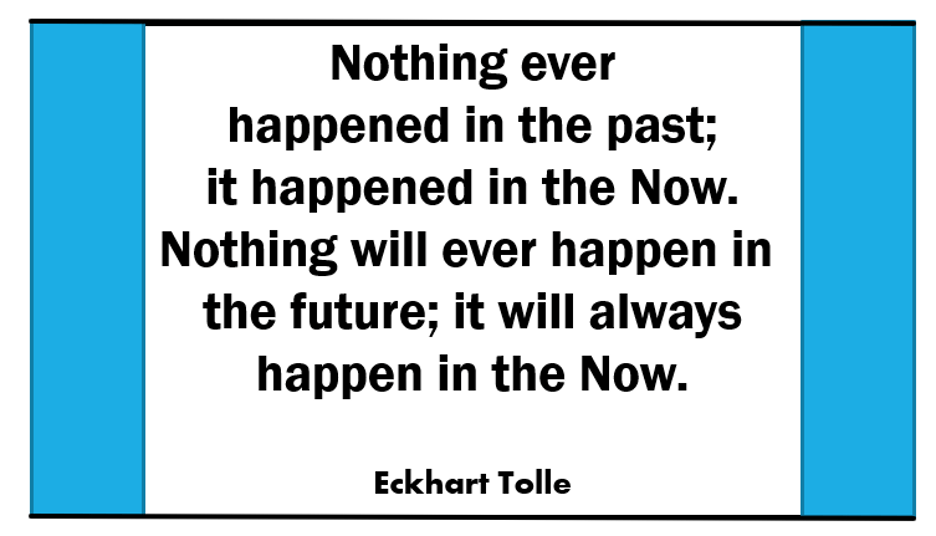
Eastern teachings and practices that are 2,500 years old proclaim the beneficence of being in the present moment – being able to be in the "now."
An aspect of this teaching is that "now" is ultimately all that exists. And if you consciously drill down, everything in your mind – past and future - is occurring in the "now." So, therefore, the "now" is all there is.
Our thinking minds are highly developed entities that generate between 60,000 and 90,000 thoughts daily. But unfortunately, most of these thoughts are discursive — going around in circles. As a result, thoughts haphazardly stray from one thought to another. The chain of association keeps you spinning wheels without gaining any traction.
Also in the mix are the frequent self-critical thoughts that push people away from the present moment. Those thoughts claim you're not good, smart, or attractive enough. And for my particular cohort, young enough.
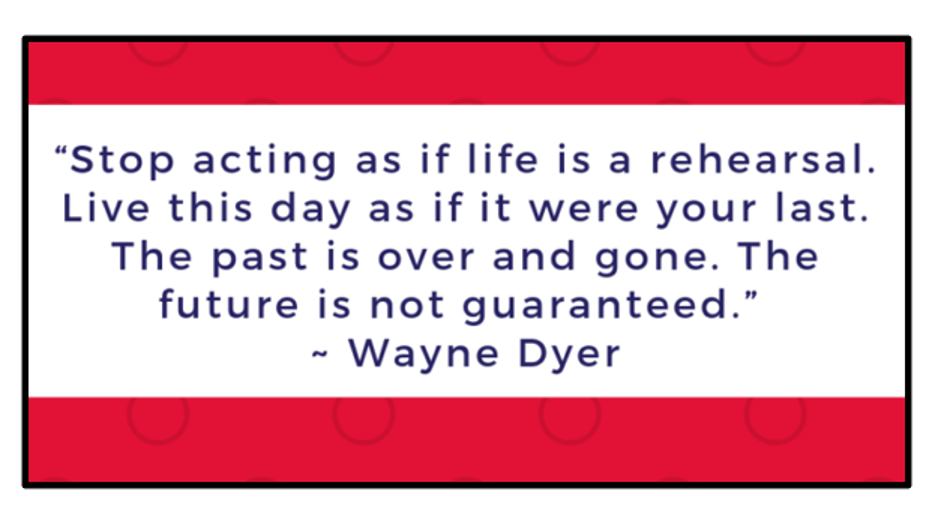
In our elder development work, we use meditation and mindfulness practices to quiet the thinking mind. During our meditations, sitting or walking, we offer reminders to notice your thoughts. The practice of "mental noting," perhaps saying quietly to ourselves, "thinking, thinking," guides attention away from unhelpful thoughts and back to the breath, the body, and the present moment.
Another practice we use is to label our thoughts as they occur, such as anger, fear, or judgment. Giving thoughts a label moves them from subjective to objective allowing disassociation from the thought's grasping and pulling.
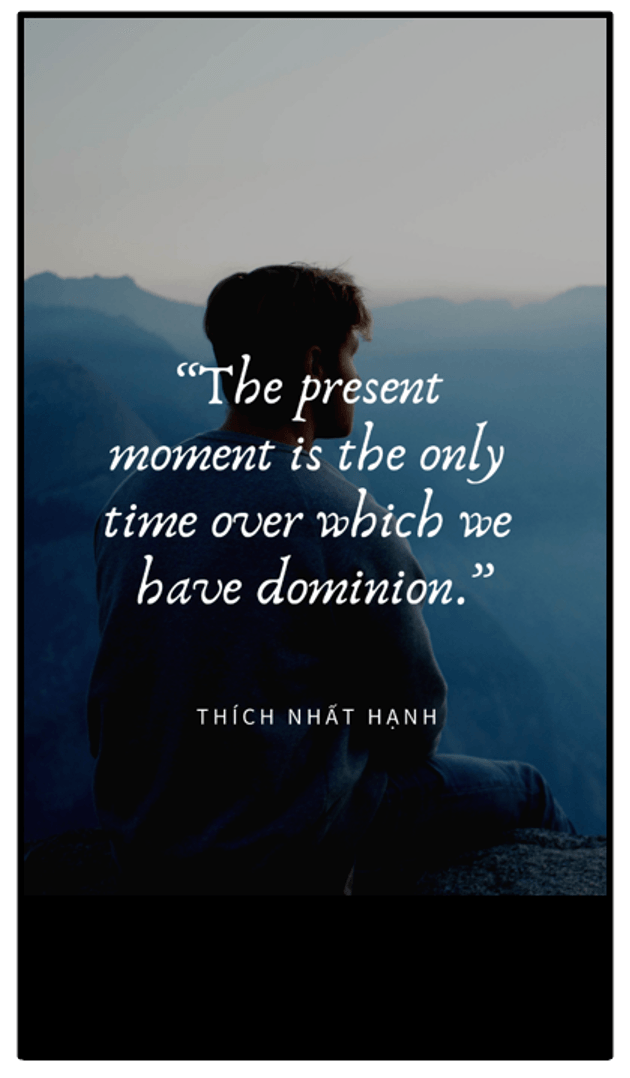
As highly tenured and successful professionals, my clients have developed their minds to think strategically to accomplish their intentions. As a result, their minds are most often focused on planning and the necessary strategies and tactics to execute these plans.
The strategic-tactical-planning mind spends most of its time plowing through the past or arranging the future. There are few rest stops. The now quickly disappears into the past-future. Locating themselves in the now is unfamiliar and sometimes scary territory. It takes real courage to let go of your thoughts.
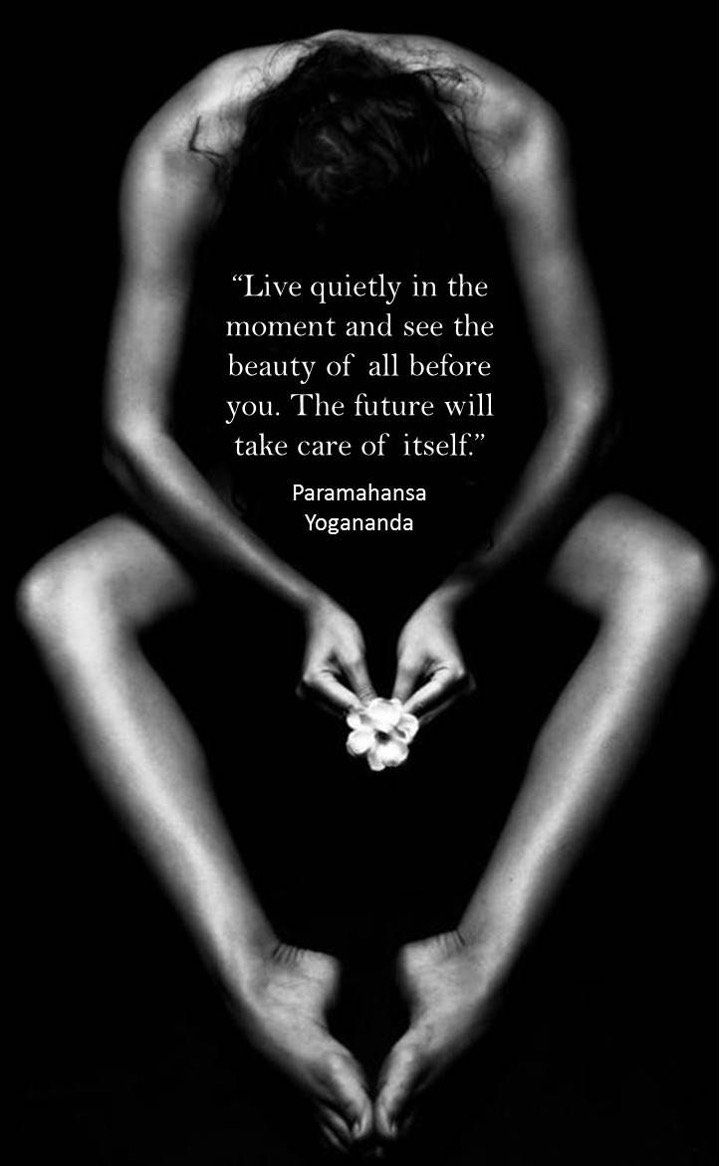
The easiest way to explain being in the present is to start by explaining what it means not to be present. For example, a fish doesn't know it's in water until you take it out of water.
Your thoughts are your water.
Of course, it's natural to spend moments of thought on the past or daydream of the future. Identifying impending dangers through associations with things that have happened in the past is essential for self-preservation.
But when your life becomes dictated by thoughts and emotions attached to past events and potential future outcomes, standing peacefully rooted in the present becomes increasingly rare.
Our unexamined minds are always off, mulling over negativity and struggles of the past or becoming anxious and fearful of the future. Seldom are we entirely "here," objectively centered on seeing through life's lens with clarity and naked awareness – a state that assists us in finding contentment and understanding in ourselves.
Being fully in the moment takes a discipline that elders are committed to achieving. Elders realize their ability to be in the moment is the gateway to equanimity with themselves and the world around them.

THE DEPARTING PROGRAM
The Departing Program is for late-age professionals who are about to leave, or have left, their well-established and well-burnished professional careers.
The Program abides by the definition of departing - starting a new journey; deviating from the accepted, prescribed, or traditional course of action.
The Departing Program is not about an ending but a new and conscious beginning.
- The Program facilitates a shift in mindset from older to elder.
- The Program enables a change from accumulated knowledge to higher wisdom via self-examination and self-understanding.
- The Program alters the imposed relationship with aging, death, and dying.
- The Program allows the realization of greater freedom, ease, and full self-expression in the late age years ahead.
- The Program enriches and expands psychological, physical, and spiritual well-being.
- The Program disengages the grasping and clinging to the past and disconnecting from the unexamined identity allowing a new future to emerge.
- The Program answers the question, what's next in my late age years.
Is The Departing Program for me? If you recognize these characters below, you are age-appropriate for the Departing Program.
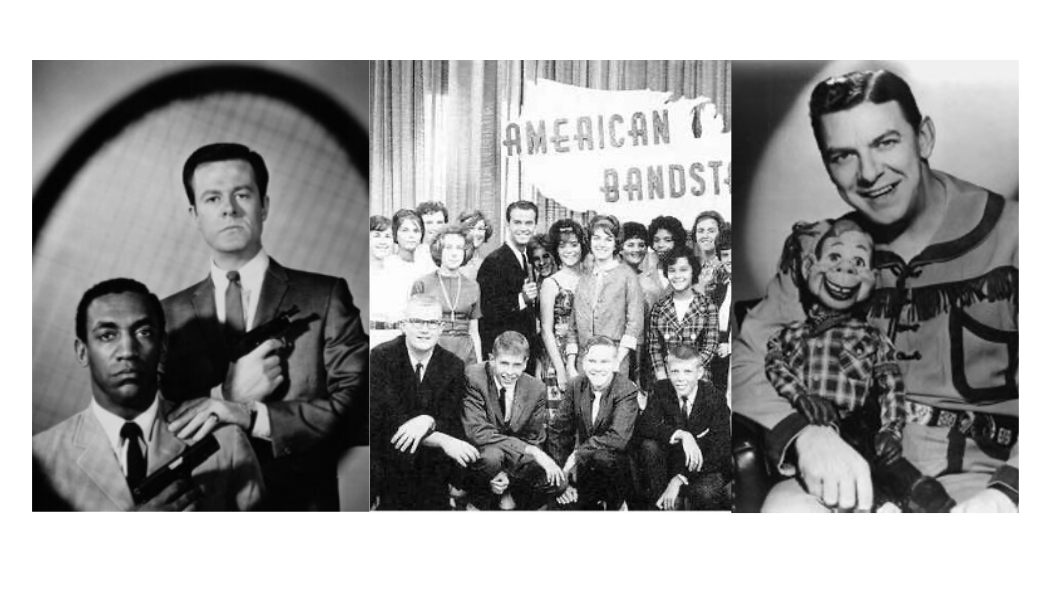
Contact Dr. Cooper for further details or questions. www.requestingwisdom.com/CONTACT
